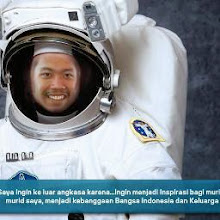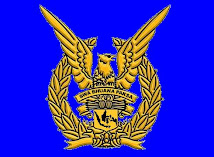First Prizes
Wilhelm Conrad Röntgen received the first Physics Prize for his discovery of X-rays.
Once the Nobel Foundation and its guidelines were in place, the Nobel Committees began collecting nominations for the inaugural prizes. Subsequently they sent a list of preliminary candidates to the prize-awarding institutions.
Originally, the Norwegian Nobel Committee appointed prominent figures including Jørgen Løvland, Bjørnstjerne Bjørnson and Johannes Steen to give the Nobel Peace Prize credibility.
The committee awarded the Peace Prize to two prominent figures in the growing peace movement around the end of the 19th century. These were Frédéric Passy, co-founder of the Inter-Parliamentary Union, and Henry Dunant the founder of the International Committee of the Red Cross
Originally, the Norwegian Nobel Committee appointed prominent figures including Jørgen Løvland, Bjørnstjerne Bjørnson and Johannes Steen to give the Nobel Peace Prize credibility.
The committee awarded the Peace Prize to two prominent figures in the growing peace movement around the end of the 19th century. These were Frédéric Passy, co-founder of the Inter-Parliamentary Union, and Henry Dunant the founder of the International Committee of the Red Cross
- Physics, Sir Venkata Raman
- Chemistry, Arthur Harden
- Chemistry, Hans von Euler-Chelpin
- Literature, Thomas Mann
- Medicine, Christiaan Eijkman
- Medicine, Sir Frederick Hopkins
- Peace, Frank B. Kellogg
- Physics, Louis de Broglie
- Chemistry, Adolf Windaus
- Literature, Sigrid Undset
- Medicine, Charles Nicolle
- Peace, No Prize was Awarded
- Physics, Owen Willans Richardson
- Chemistry, Heinrich Wieland
- Literature, Henri Bergson
- Medicine, Julius Wagner-Jauregg
- Peace, Ferdinand Buisson
- Peace, Ludwig Quidde
- Physics, Arthur H. Compton
- Physics, C.T.R. Wilson
- Chemistry, The Svedberg
- Literature, Grazia Deledda
- Medicine, Johannes Fibiger
- Peace, Aristide Briand
- Peace, Gustav Stresemann
- Physics, Jean Baptiste Perrin
- Chemistry, Richard Zsigmondy
- Literature, George Bernard Shaw
- Medicine, No Prize was Awarded
- Peace, Sir Austen Chamberlain
- Peace, Charles G. Dawes
- Physics, James Franck
- Physics, Gustav Hertz
- Chemistry, No Prize was Awarded
- Literature, Wladyslaw Reymont
- Medicine, Willem Einthoven
- Peace, No Prize was Awarded
- Physics, Manne Siegbahn
- Chemistry, Fritz Pregl
- Literature, William Butler Yeats
- Medicine, Frederick G. Banting
- Medicine, John Macleod
- Peace, No Prize was Awarded
- Physics, Robert A. Millikan
- Chemistry, Francis W. Aston
- Literature, Jacinto Benavente
- Medicine, Archibald V. Hill
- Medicine, Otto Meyerhof
- Peace, Fridtjof Nansen
- Physics, Niels Bohr
- Chemistry, Frederick Soddy
- Literature, Anatole France
- Medicine, No Prize was Awarded
- Peace, Hjalmar Branting
- Peace, Christian Lange
- Physics, Albert Einstein
- Chemistry, Walther Nernst
- Literature, Knut Hamsun
- Medicine, August Krogh
- Peace, Léon Bourgeois
- Physics, Charles Edouard Guillaume
- Chemistry, No Prize was Awarded
- Literature, Carl Spitteler
- Medicine, Jules Bordet
- Peace, Woodrow Wilson
- Physics, Johannes Stark
- Chemistry, Fritz Haber
- Literature, No Prize was Awarded
- Medicine, No Prize was Awarded
- Peace, No Prize was Awarded
- Physics, Max Planck
- Chemistry, No Prize was Awarded
- Literature, Karl Gjellerup
- Literature, Henrik Pontoppidan
- Medicine, No Prize was Awarded
- Peace, International Committee of the Red Cross
- Physics, Charles Glover Barkla
- Chemistry, No Prize was Awarded
- Literature, Verner von Heidenstam
- Medicine, No Prize was Awarded
- Peace, No Prize was Awarded
- Physics, No Prize was Awarded
- Chemistry, Richard Willstätter
- Literature, Romain Rolland
- Medicine, No Prize was Awarded
- Peace, No Prize was Awarded
- Physics, William Bragg
- Physics, Lawrence Bragg
- Chemistry, Theodore W. Richards
- Literature, No Prize was Awarded
- Medicine, Robert Bárány
- Peace, No Prize was Awarded
- Physics, Max von Laue
- Chemistry, Alfred Werner
- Literature, Rabindranath Tagore
- Medicine, Charles Richet
- Peace, Henri La Fontaine
- Physics, Heike Kamerlingh Onnes
- Chemistry, Victor Grignard
- Chemistry, Paul Sabatier
- Literature, Gerhart Hauptmann
- Medicine, Alexis Carrel
- Peace, Elihu Root
- Physics, Gustaf Dalén
- Chemistry, Marie Curie
- Literature, Maurice Maeterlinck
- Medicine, Allvar Gullstrand
- Peace, Tobias Asser
- Peace, Alfred Fried
- Physics, Wilhelm Wien
- Chemistry, Otto Wallach
- Literature, Paul Heyse
- Medicine, Albrecht Kossel
- Peace, Permanent International Peace Bureau
- Physics, Johannes Diderik van der Waals
- Chemistry, Wilhelm Ostwald
- Literature, Selma Lagerlöf
- Medicine, Theodor Kocher
- Peace, Auguste Beernaert
- Peace, Paul Henri d'Estournelles de Constant
- Physics, Ferdinand Braun
- Physics, Guglielmo Marconi
- Chemistry, Ernest Rutherford
- Literature, Rudolf Eucken
- Medicine, Paul Ehrlich
- Medicine, Ilya Mechnikov
- Peace, Klas Pontus Arnoldson
- Peace, Fredrik Bajer
- Physics, Gabriel Lippmann
- Chemistry, Eduard Buchner
- Literature, Rudyard Kipling
- Medicine, Alphonse Laveran
- Peace, Ernesto Teodoro Moneta
- Peace, Louis Renault
- Physics, Albert A. Michelson
- Chemistry, Henri Moissan
- Literature, Giosuè Carducci
- Medicine, Camillo Golgi
- Medicine, Santiago Ramón y Cajal
- Peace, Theodore Roosevelt
- Physics, J.J. Thomson
- Chemistry, Adolf von Baeyer
- Literature, Henryk Sienkiewicz
- Medicine, Robert Koch
- Peace, Bertha von Suttner
- Physics, Philipp Lenard
- Chemistry, Sir William Ramsay
- Literature, José Echegaray
- Literature, Frédéric Mistral
- Medicine, Ivan Pavlov
- Peace, Institute of International Law
- Physics, Lord Rayleigh
- Chemistry, Svante Arrhenius
- Literature, Bjørnstjerne Bjørnson
- Medicine, Niels Ryberg Finsen
- Peace, Randal Cremer
- Physics, Henri Becquerel
- Physics, Pierre Curie
- Physics, Marie Curie
- Chemistry, Emil Fischer
- Literature, Theodor Mommsen
- Medicine, Ronald Ross
- Peace, Élie Ducommun
- Peace, Albert Gobat
- Physics, Hendrik A. Lorentz
- Physics, Pieter Zeeman
- Chemistry, Jacobus H. van 't Hoff
- Literature, Sully Prudhomme
- Medicine, Emil von Behring
- Peace, Henry Dunant
- Peace, Frédéric Passy
- Physics, Wilhelm Conrad Röntgen
The Nobel Committee's Physics Prize shortlist cited Wilhelm Conrad Röntgen's discovery of X-rays and Philipp Lenard's work on cathode rays. The Academy of Sciences selected Röntgen for the prize.
In the last decades of the 19th century, many chemists had made significant contributions. Thus, with the Chemistry Prize, the Academy "was chiefly faced with merely deciding the order in which these scientists should be awarded the prize."
The Academy received 20 nominations, eleven of them for Jacobus van't Hoff. Van't Hoff was awarded the prize for his contributions in chemical thermodynamics. The Swedish Academy chose the poet Sully Prudhomme for the first Nobel Prize in Literature.
A group including 42 Swedish writers, artists and literary critics protested against this decision, having expected Leo Tolstoy to win. Some, including Burton Feldman, have criticised this prize because they consider Prudhomme a mediocre poet. Feldman's explanation is that most of the Academy members preferred Victorian literature and thus selected a Victorian poet.
The first Physiology or Medicine Prize went to the German physiologist and microbiologist Emil von Behring. During the 1890s, von Behring developed an antitoxin to treat diphtheria, which until then was causing thousands of deaths each year.
Sumber:
Nobel Prize
Wikipedia
























No comments:
Post a Comment